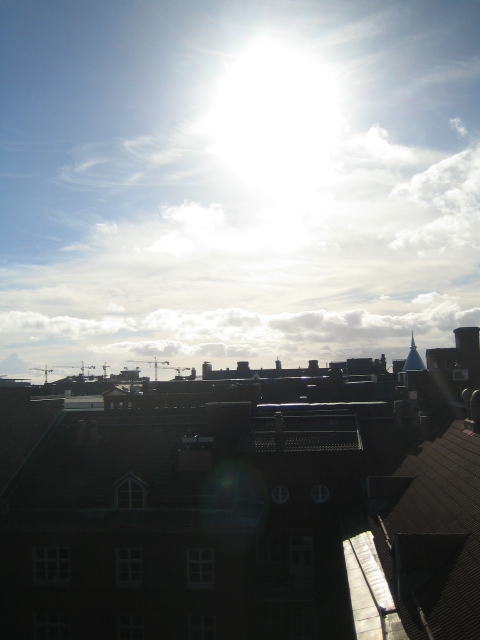Am on sick leave today because the wretched remnants of illness still lingered this morning. My New Year’s Eve was spent with a fever; I was so out of it that I was extremely content to be alone, and toasted the new year with a cup of peppermint tea. I’ve been under the weather ever since. But since I feel okay right now (finally, an appetite and less nausea!) I’m hoping that I’ll be fully well again tomorrow.
Anyway. Due to being alone on NYE, I was able to start off the year with a poem. Nice. Wasn’t a good one, but it was good to write.
Today I’ve been trying to get back into a specfic-ish story (well, novelette, really) that I started back in December 2010. It’s got potential, I think. I need to finish the actual plot and then get to editing.
But so far I’ve been too tired and headachy to get into the novelette. Bleh. Instead I decided to do a poem challenge from Joseph Harker’s delightful blog (I’ve been reading through the archives. Damn, that man is a talented poet!).
The basic premise of this particular prompt is to create a little series of “poemlets”, like charms on a bracelet. See the original post for the full instructions. I chose seven of Joseph’s themes (childhood memory/linguistic beauty/keeping a secret/romantic encounter/discovering laughter/life goal/telling the future) and started playing. Here are the extra elements (quoted from his blog post):
first poemlet: mention your birthstone
second poemlet: use a word with three or more syllables
third poemlet: mention your zodiac sign
fourth poemlet: use at least three capital letters (“I” on its own, and the beginnings of lines, do not count)
fifth poemlet: pick a color and use at least two synonyms/varieties/shades of it
sixth poemlet: use as many different kinds of punctuation mark as you can
seventh poemlet: surprise us with something fancy!
Anyway, this is an experiment that I’m unlikely to end up submitting to be published, so I thought I’d share it with my readers. 🙂
[I would’ve wanted the roman numerals to be on the same level as the first line of each charmlet, with the rest of the stanza indented, but apparently that’s beyond my html skills and I’m too tired to figure it out now. So have this version, with the numerals above. /end perfectionism]
* * *
Charmlets
i.
sticky summer, eating watermelon
by the bucketful, the richness
of it, like gobbling down
soft tourmalines
ii.
peeling back the centuries
to Caedmon’s hymn
I shiver
at the reconstructed sounds,
the stark vowels
humming down in my throat
iii.
Scorpios keep secrets well, they say.
Perhaps I do, although I toss
horoscopes down the drain.
After all, some secrets I kept
for years.
iv.
when I first met you,
and You, and YOu, and YOU,
my heart didn’t know
what wonders were ahead
on this winding road
leading downriver
v.
That summer I learnt to laugh again.
The grass seemed greener
than heaven, as I sank down
onto the malachite bed
prepared for me
by nature –
that moss-fingered mother.
vi.
Oh – to struggle for it
and grasp it too! No fear
(no fear); just the blossoming woods
of my work: beauty written
down onto each petal…
dare I? dare I?
vii.
If
I could
reach down into my soul,
grasp a surety beyond the shoal
of slippery wishes, and see
my future before me –
if I could,
would
I?
* * *
